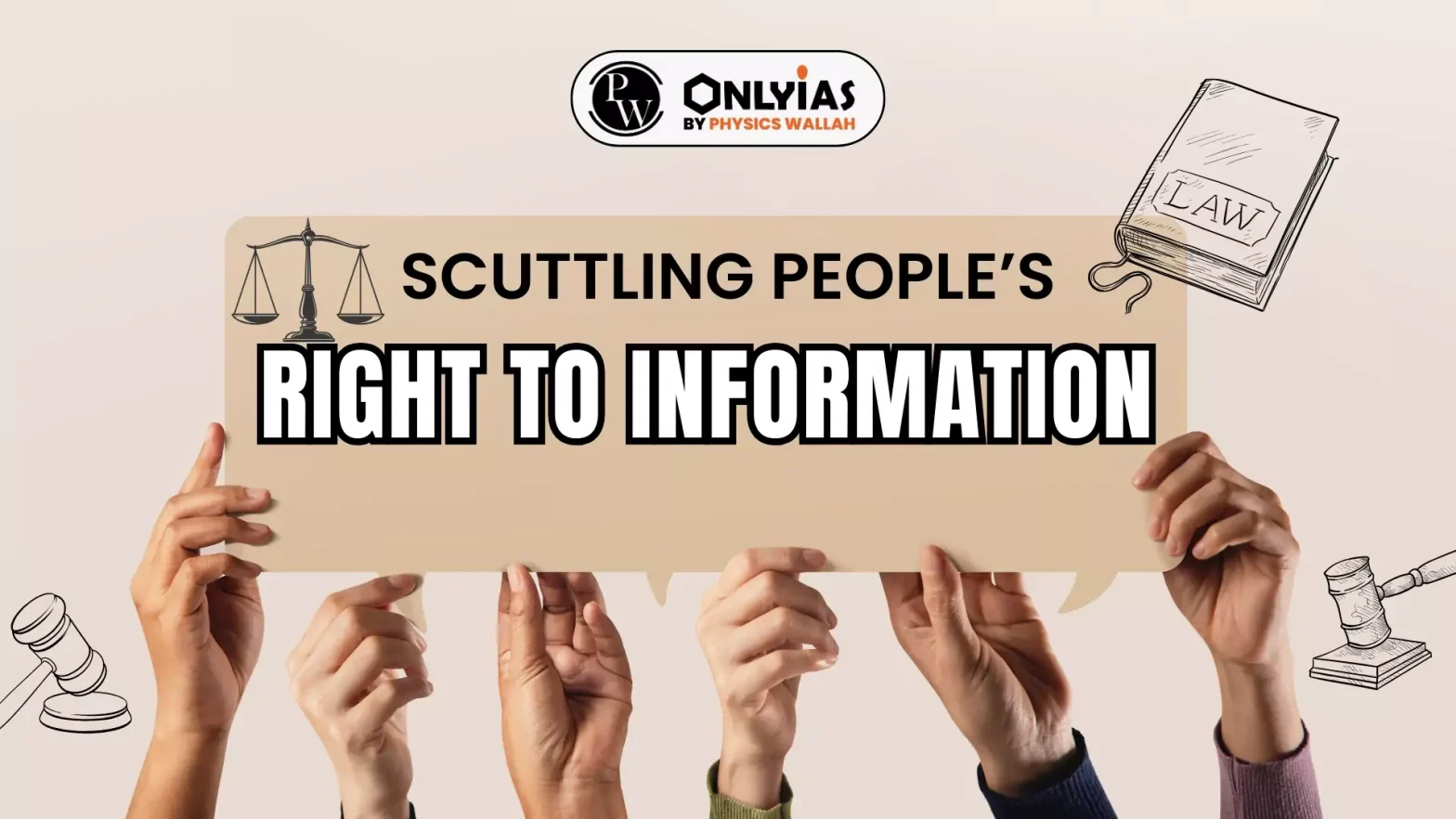The Right to Information (RTI) Act, enacted in 2005, has recently entered its 20th year but faces significant backlash over concerns regarding its effectiveness and recent amendments that critics argue undermine its original purpose of promoting transparency and accountability.
Positive Impact of RTI Act 2005
- Accountability: The Right to Information (RTI) Act, enacted in 2005, has empowered Indian citizens by promoting transparency and accountability in governance.
- Impact on Governance: The RTI Act has played a crucial role in exposing corruption, particularly in essential services like the Public Distribution System (PDS), and has shed light on opaque practices such as the electoral bonds scheme.
- Citizen Engagement: With approximately 6 million applications filed annually, the RTI law has significantly transformed the relationship between the government and citizens, facilitating a redistribution of power within the democratic framework.
Enroll now for UPSC Online Course
Associated Challenges
1. Regressive Amendments
- 2019 Amendment: Allowed the Central Government to set the tenure, salaries, and benefits of information commissioners, jeopardising their autonomy and leading to biassed decisions.
- Digital Personal Data Protection (DPDP) Act, 2023: Exempted all personal information from disclosure, and removed provisions that equated citizens’ rights to information with those of MPs and MLAs.
2. Backlash Against Users
- Nearly 100 RTI activists have been killed, with thousands facing assaults or threats. The Whistleblowers Protection Act (2014) remains unimplemented due to a lack of rules.
Whistleblowers Protection Act (2014)
- The Whistleblowers Protection Act, 2014, was enacted to create a framework for receiving complaints regarding allegations of corruption, willful misuse of power, or discretion by public servants.
- It aims to establish a mechanism for inquiring into such disclosures while providing adequate safeguards against victimisation of whistleblowers. The Act also addresses related matters to ensure protection for those who report misconduct.
|
Check Out UPSC NCERT Textbooks From PW Store
3. Vacant Posts and Backlogs:
- As of 2023, seven commissions were non-functional, with Jharkhand’s commission defunct for over four years.
- More than 4 lakh appeals and complaints remain pending across India, with some states, like Chhattisgarh and Bihar, taking up to six years to dispose of appeals.
4. Inadequate Staffing
- Since May 2015, not a single information commissioner has been appointed to the Central Information Commission by the Central government without citizens having to approach courts.
- Despite repeated directions by the Supreme Court, eight out of 11 posts are vacant in the Central Information Commission.
- The information commission of Maharashtra, with a backlog of more than 1 lakh appeals and complaints, is headless. Six out of 11 posts of commissioners are lying vacant.
5. Appointment Issues
- The majority of information commissioners appointed are retired government officials or politically connected individuals, which undermines the independence and effectiveness of the commissions.
- Many commissioners are reluctant to act against government violations of transparency laws, further eroding public confidence.
6. Lack of Penalties for Violations
- In 95% of cases where penalties for non-disclosure could have been imposed, commissions failed to do so.
- This lack of enforcement creates a culture of impunity, encouraging information officers to delay, refuse, or ignore legitimate RTI requests.
Enroll now for UPSC Online Classes
Implications for Democracy
- Erosion of Transparency: As information commissions weaken, citizens’ access to crucial information declines, eroding one of the foundational elements of democratic accountability.
- Undermining Citizen Participation: By delaying the resolution of RTI appeals and curtailing access to information, the government diminishes the role of citizens in monitoring public institutions.
- Threats to Whistleblowers: The lack of implementation of the Whistleblowers Protection Act, combined with the violence faced by RTI activists (with nearly 100 killed), shows a growing intolerance towards those who use the law to expose wrongdoing. This threatens democratic values by deterring citizens from using the RTI for fear of retaliation.
Conclusion
The challenges facing the RTI Act have weakened its effectiveness, effectively rendering it a dead letter. This decline reduces its ability to promote transparency and accountability in government, which is a serious threat to democracy and citizen empowerment.
![]() 14 Oct 2024
14 Oct 2024
